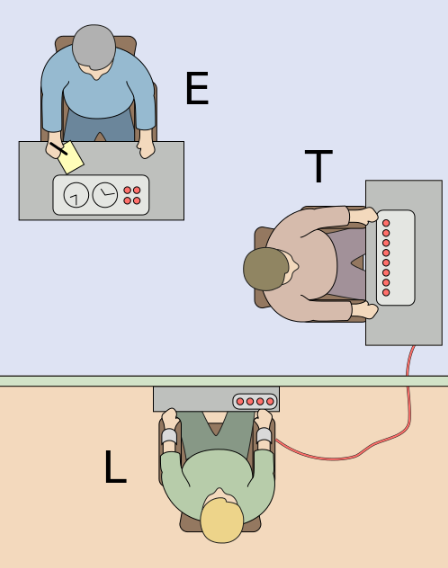What are Ethics?
- The study of moral standards and how they affect conduct
- Moral standards : as system of principles governing the appropriate conduct of an individual
Why Should You Care About Ethics?
- As desingers, engineers, researchers you have great power
- 사람들은 당신이 expert라고 믿을 것이다.
- 사람들은 당신이 말하는 것을 할 것이다.
- People will blame themselves.
- For errors, mistakes
- When things go wrong
- For not giving you the results you want
- Participants might be reduced to tears, or worse ...
- With great power comes great responsibility
- IRB(Institute of Review Board), ethics review, etc.
Milgram Experiment
- 권위에 대한 복종에 대한 실험
- Three roles
- Teacher(participant)
- Learner(participant, but actually actor)
- Experimenter

- 실험자(E)는 선생 역할의 피실험자에게는 학생에게 테스트할 문제를, 학생 역할의 배우에게는 암기할 단어를 제시했다. 그리고 선생에게 학생들을 테스트한 후 학생이 문제를 틀릴 때마다 15v부터 450v 까지 한번에 15v 씩의 전기 충격을 가하라고 지시했다. 놀랍게도 65%의 피실험자가 450v까지 전압을 올렸다.
What is Bias?
- Prejudice in favor of or against one thing, person, or group compared with another, usually in a way considered to be unfair.
- types of bias
- Explicit
- Person is aware of his/her evaluation
- Conscious bias
- Implicit
- Person doesn't perceive or endorse evaluation
- Subconscious bias
Types of Bias You Should Think About
- Selection bias
특정 집단을 집중적으로 선택하는 것에서 생길 수 있는 편향성
- Social desirability bias
여론조사나 설문조사에서 응답자들이 다른 사람들에 의해 좋게 보이거나 좋은 인상을 줄 수 있는 답을 하려는 경향
- Demand characteristics
- Evaluator/Interviewer bias
설문조사자의 편견이나 유도질문 때문에 유발되는 bias
- Acquiescing
- Extreme responding
- Others
What Can You Do About Bias?
- Two strategy solutions
- Overriding unconscious bias
- Be aware of the potential for bias
- Be motivated to control bias
- Consider individual characteristics
- Avoid stereotyped evaluations
- Change implicit assumptions

